At Iris Veterinary Care, we prioritize the health of your pet’s eyes. Eye conditions can develop suddenly or progress over time, affecting your pet’s vision and overall well-being. Early detection and treatment are crucial in preserving sight and preventing complications. This guide covers common eye problems in pets, how to recognize warning signs, and when to seek veterinary care.
Common Eye Problems in Dogs and Cats
Recognizing Symptoms of Eye Diseases
Pet owners should be aware of the following signs that may indicate an eye problem:
- Redness or swelling
- Excessive tearing or discharge (clear, yellow, or green)
- Frequent eye rubbing or pawing at the eyes
- Squinting or sensitivity to light
- Cloudiness or a bluish tint over the eye
- Bulging or sunken eyes
- Behavioral changes, such as reluctance to play or navigate spaces
If your pet exhibits any of these symptoms, schedule an exam as soon as possible to prevent worsening conditions.
Common Eye Conditions in Pets
Conjunctivitis (Pink Eye)
Conjunctivitis is the inflammation of the tissue lining the eyelids and the white part of the eye. It can be caused by infections, allergies, or irritants. Symptoms include redness, swelling, and a sticky discharge. If left untreated, conjunctivitis can lead to corneal damage.
Learn more about conjunctivitis in pets.
Corneal Ulcers
Corneal ulcers occur when the outer layer of the cornea is damaged due to injury, infection, or inadequate tear production. These ulcers can cause severe pain, squinting, and cloudiness over the cornea. Immediate treatment is necessary to prevent scarring or blindness.
More details on corneal ulcers in pets.
Cataracts
Cataracts develop when the lens becomes cloudy, leading to vision impairment or blindness. While often associated with aging, cataracts can also result from diabetes, genetics, or trauma. Surgical removal can restore vision in many cases.
Glaucoma
Glaucoma occurs when intraocular pressure increases, causing pain and potential blindness. Symptoms include eye bulging, redness, and a dilated pupil. Immediate veterinary care is essential, as untreated glaucoma can quickly lead to permanent damage.
Ocular Tumors
Eye tumors, whether benign or malignant, can cause swelling, irritation, and vision loss. Early detection improves treatment options and outcomes.
Learn more about common ocular tumors in pets.
Progressive Retinal Atrophy (PRA)
PRA is a genetic condition that leads to gradual vision loss. While there is no cure, early diagnosis allows for lifestyle adaptations to help pets navigate safely.
More about eye conditions in pets.
Emergency Eye Care: When to Seek Immediate Veterinary Attention
Some eye issues require urgent care to prevent permanent damage. Seek emergency veterinary care if your pet shows:
- Sudden blindness or loss of vision
- Severe pain (constant squinting, pawing at the eye, whining)
- Blood in or around the eye
- A bulging or sunken eye
- Unequal pupil sizes or abnormal eye movements
- Eye discharge with a foul odor
For more emergency eye care information.
First Aid for Eye Injuries Before Reaching the Vet
- Do not apply human eye drops unless instructed by a vet.
- Gently clean around the eye with a damp, soft cloth.
- Prevent scratching or rubbing by using an Elizabethan collar (E-collar).
- Keep your pet calm and avoid exposure to bright lights.
Preventing Eye Problems in Pets
Routine Eye Exams
Regular veterinary check-ups help detect issues early. Pets should have:
- Annual eye exams for early disease detection.
- More frequent checks for high-risk breeds prone to eye conditions (e.g., brachycephalic breeds like Pugs and Bulldogs).
At-Home Eye Care Tips
- Inspect your pet’s eyes daily for redness, discharge, or cloudiness.
- Keep hair trimmed around the eyes to prevent irritation.
- Use vet-approved eye wipes to remove debris and tear stains.
- Provide protective eyewear for pets exposed to bright sun or wind.
How Iris Veterinary Care Can Help
Our Comprehensive Eye Care Services
At Iris Veterinary Care, we offer:
- Advanced diagnostics (ocular ultrasonography, electroretinography)
- Medical management for infections, inflammation, and chronic conditions
- Surgical treatment for cataracts, corneal injuries, and tumor removal
Our experienced veterinarians are equipped to handle everything from routine eye care to complex surgical interventions.
FAQs About Pet Eye Health
What are the early warning signs of eye disease in pets?
Look for redness, excessive tearing, cloudiness, squinting, and behavioral changes like avoiding bright light or reluctance to move in unfamiliar areas.
Can eye infections in pets heal on their own?
No. Untreated infections can worsen and lead to corneal ulcers or blindness. Veterinary treatment is necessary for proper healing.
What treatments are available for pet eye conditions?
Depending on the diagnosis, treatment may include:
- Antibiotics or antifungal medications for infections
- Steroid drops to reduce inflammation
- Surgery for cataracts, glaucoma, or tumors.
Prioritize Your Pet’s Eye Health with Iris Veterinary Care
At Iris Veterinary Care, we believe in proactive eye health management to ensure your pet’s comfort and quality of life. Whether it’s a routine check-up or urgent eye care, our team is here to help.
Healthy eyes mean a happy life for your pet.

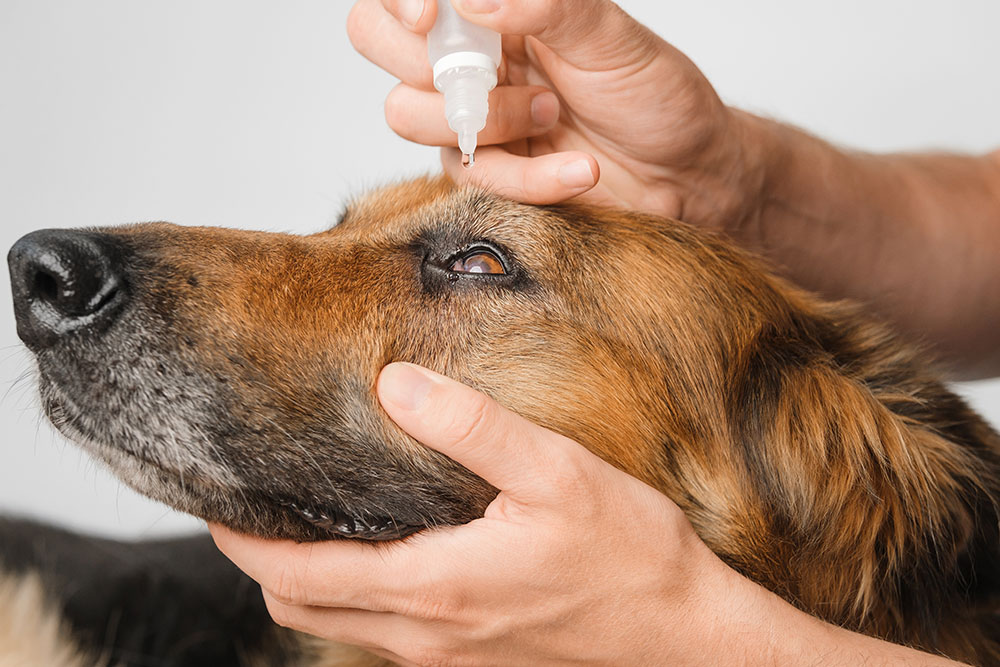
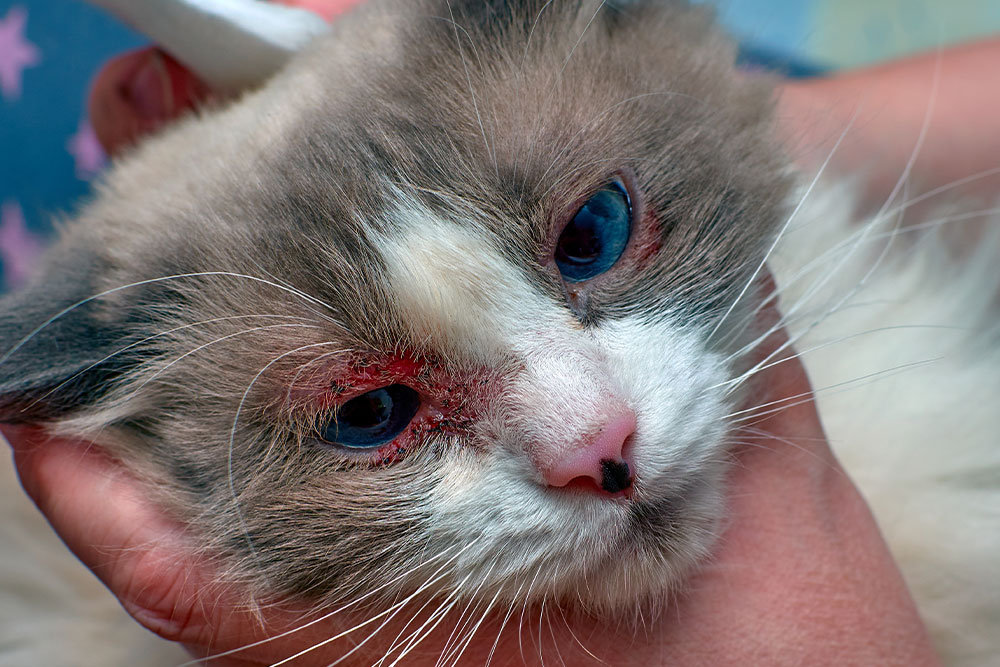

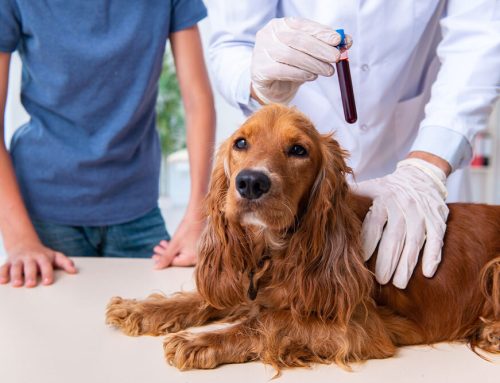
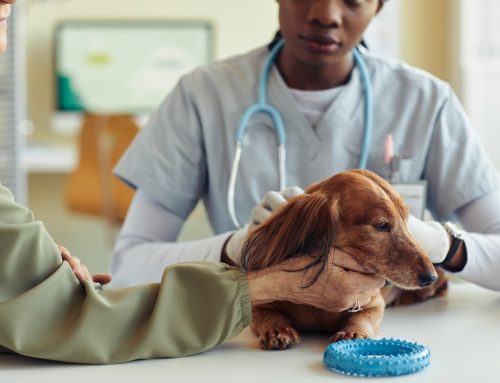

Leave A Comment